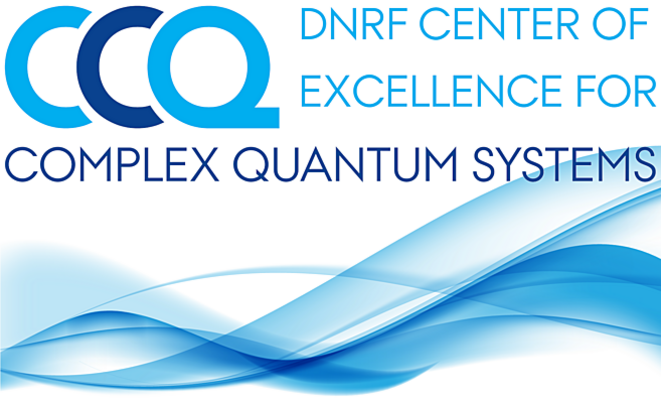
The Center for Complex Quantum Systems (CCQ) aims to advance our understanding of collective quantum phenomena in large collections of particles, such as atoms, ions, and photons. We seek to exploit these insights to develop new techniques for probing and steering complex quantum dynamics. This may allow us to generate and control emergent phenomena that arise at the interface of such distinct quantum systems. The center is based at Aarhus University, at the Department of Physics and Astronomy, and is funded as a Center of Excellence by the Danish National Research Foundation.
In CCQ we seek to build complex quantum systems from a single-atom level. When atoms are cooled down to near absolute zero temperatures, they can open a window into the quantum nature of matter. The technological breakthroughs to make this possible form the backbone of future quantum technologies. CCQ aims to expand these capabilities by designing novel hybrid systems in which atoms, ions, and photons form new quantum states and generate emergent behavior beyond their individual functionalities.
CCQ was initiated in September 2020 by three theory groups (Thomas Pohl, Georg Bruun and Klaus Mølmer) and two experimental groups (Jan Arlt and Michael Drewsen).
Since then, Klaus Mølmer has moved to the University of Copenhagen and Thomas Pohl has moved to the Technical University of Vienna. Both groups are now external partners of CCQ and remain in close collaboration with the three groups at Aarhus University.